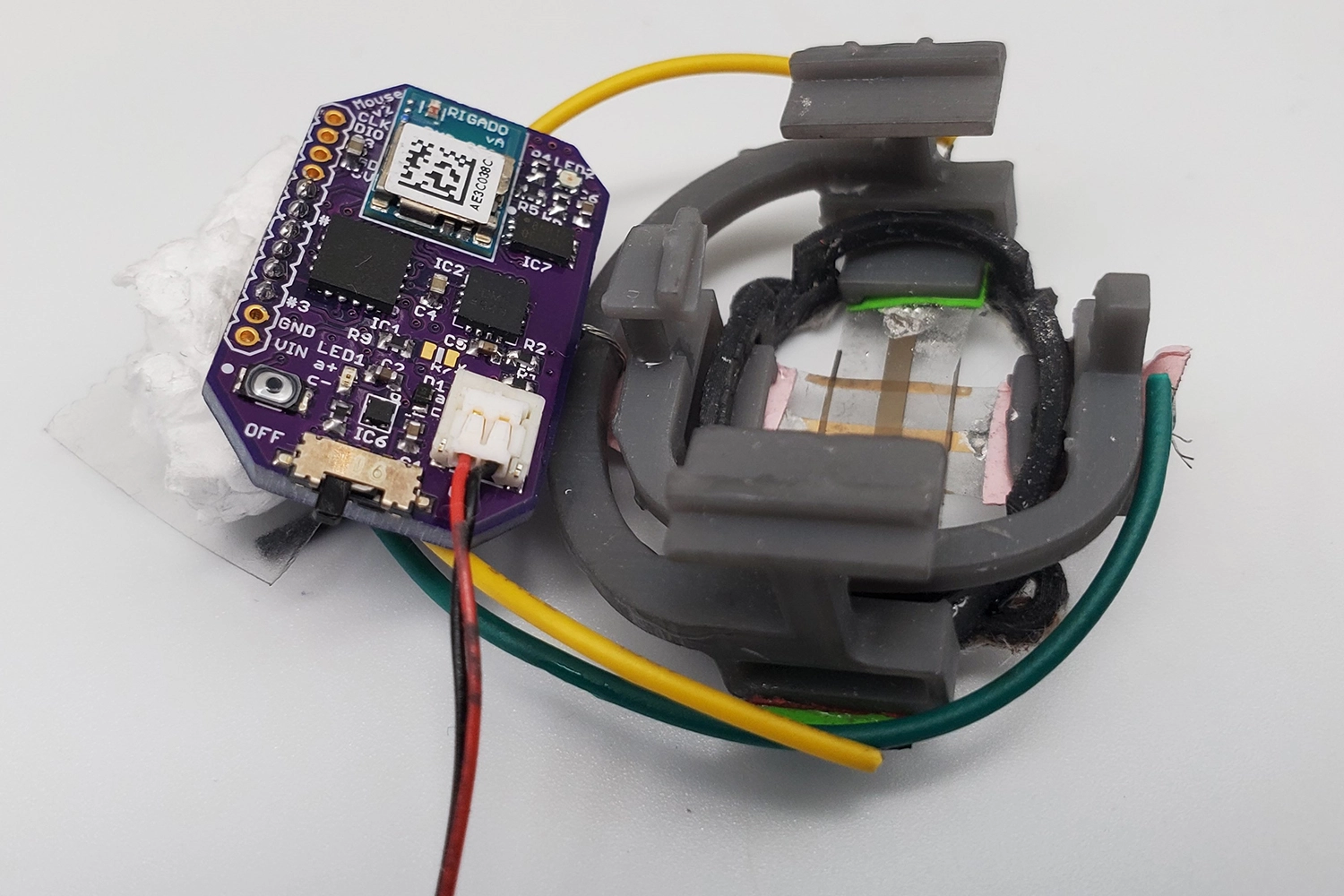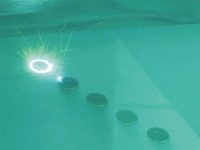The “flexible autonomous sensor for tumor measurement” (FAST) represents a novel, fast, inexpensive, portable and accurate way to test the efficacy of anticancer drugs, the researchers said. In the long run, it may point to new directions for cancer treatment. FAST sensors detect changes in tumor volume on a minute scale, whereas calipers and bioluminescence measurements typically require observation periods of up to several weeks to detect changes in tumor size.
FAST consists of a flexible and stretchable skin-like polymer that includes a layer of embedded gold circuitry. This sensor is attached to a small electronic backpack. The device measures the tension on the film (how much it stretches or shrinks) and transmits the data to a smartphone. Using the FAST backpack, potential therapeutic effects related to tumor size regression can be quickly and accurately determined, or fast-tracked for further study.
The researchers say there are at least three notable advancements in the new device. First, it provides continuous monitoring because the sensor is physically attached to the mouse and remains in place throughout the experiment; second, the flexible sensor wraps the tumor and thus is able to measure shape changes that are otherwise difficult to discern; third, FAST is both a Autonomous and non-invasive. It attaches to the skin like a Band-Aid, battery-operated and wireless. The mouse moves freely, unobstructed by devices or wires, and scientists do not need to actively operate the mouse after placing the sensor. The FAST backpack is also reusable, costs only about $60 to assemble, and attaches to a mouse in minutes.
“It’s a deceptively simple design,” said Alex Abramson, lead author of the study and a postdoc in Zhenan Bao’s lab at the Stanford School of Engineering and now an assistant professor at Georgia Tech. These advantages should be of great interest to the oncology community and the oncology community. FAST is automated and can greatly speed up and reduce the cost of the cancer treatment screening process.”




GIPHY App Key not set. Please check settings